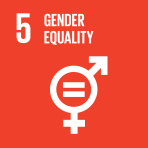Abstract
Social protection has become an increasingly important part of the social development agenda in sub-Saharan Africa. Comprehensive social protection systems can contribute to poverty eradication and reduced inequalities, stimulate productive activity and economic growth, and create resilience in the face of multiple and recurrent crises—particularly if they work in tandem with other social and labour market policies. Recently, countries in the region have made extensive use of social protection instruments to confront the economic and social fallout of the COVID-19 pandemic. Against this backdrop, this brief analyses the extent to and ways in which countries in the region integrate gender equality and women’s empowerment into their social protection efforts, drawing on a unique data set of national social protection strategies from 30 countries in the region, including 14 in West and Central Africa and 16 in East and Southern Africa. It finds that while a significant number of strategies acknowledge gendered risks and vulnerabilities, few include specific actions to address them. The brief concludes with a set of recommendations for increased mainstreaming of gender equality concerns into efforts to build national social protection systems.
- 25 Apr 2022




